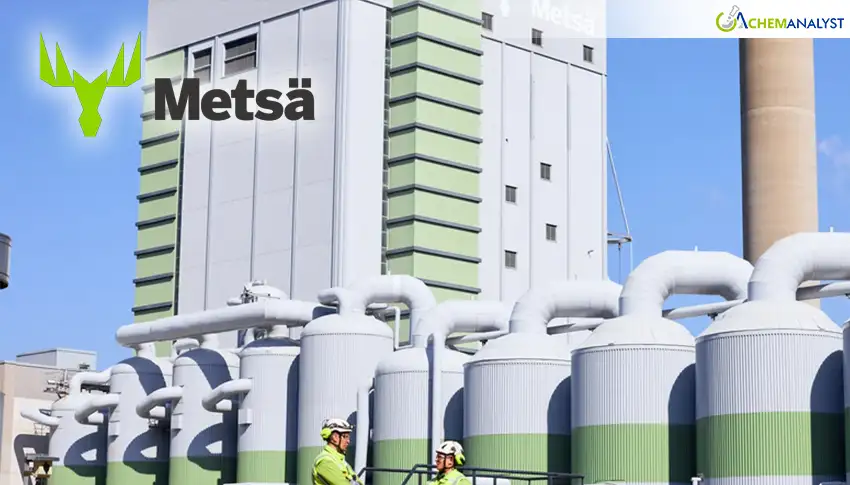Welcome To ChemAnalyst

Metsä Group pilots carbon capture at Rauma pulp mill, exploring demo plant potential while stressing regulatory support and industrial cooperation.
In June, Metsä Group took a significant step forward in industrial decarbonization with the commissioning of a carbon capture pilot plant at its Rauma pulp mill in Finland. The initiative, carried out in collaboration with Andritz – the technology provider behind the pilot facility – focuses on testing the feasibility of capturing flue gases produced during pulp manufacturing. While carbon capture has been applied in other industrial sectors, this marks the first time it is being trialed specifically on pulp mill emissions.
The pilot project will run through autumn 2025 and aims to evaluate several operational factors. These include the plant’s energy consumption, the efficiency and volume of carbon captured, and whether additional treatment of flue gases is required. Another critical aspect under review is the quality of the captured carbon dioxide, which can influence its potential for use in downstream industries.
According to Kaija Pehu-Lehtonen, Senior Vice President of Business Development and Director of Metsä Group’s carbon capture project, the initial results are promising. “So far, the technology appears to be working well with the pulp mill’s flue gases,” she confirmed, underlining the potential of this novel application.
Building on the pilot’s findings, Metsä Group is also exploring the possibility of constructing a larger demonstration plant at the Rauma site. While no final decision has been made, early plans suggest a facility capable of capturing between 30,000 and 100,000 tonnes of carbon dioxide annually. This would represent a substantial scale-up from the pilot plant, which currently captures around one tonne per day – making the demo facility more than one hundred times larger in capacity.
The project has broader implications beyond emission reduction. Bio-based carbon dioxide, a largely untapped by-product of pulp production, holds value as a raw material in industries such as chemicals and fuels. By replacing fossil-based carbon with captured bio-based alternatives, new sustainable value chains could be created. Importantly, the carbon capture process does not require additional wood inputs at the mill, nor does it interfere with production efficiency.
However, the company acknowledges the challenges ahead. Pehu-Lehtonen highlighted that carbon capture investments are substantial, while markets for bio-based CO2 remain underdeveloped. The complexity of establishing new value chains – from sourcing to end products – requires close collaboration among industry players as well as a deep understanding of operational dynamics.
Metsä Group also emphasizes the need for regulatory and financial support to accelerate adoption. Market development will depend not only on industrial innovation but also on EU- and national-level regulations and targeted investment incentives. Government-backed aid for the green transition will play a decisive role in determining whether projects such as a large-scale demo plant become reality.
Through this pilot, Metsä Group demonstrates both technological readiness and a commitment to shaping the emerging carbon utilization market, positioning itself as a leader in sustainable pulp industry practices.
We use cookies to deliver the best possible experience on our website. To learn more, visit our Privacy Policy. By continuing to use this site or by closing this box, you consent to our use of cookies. More info.
